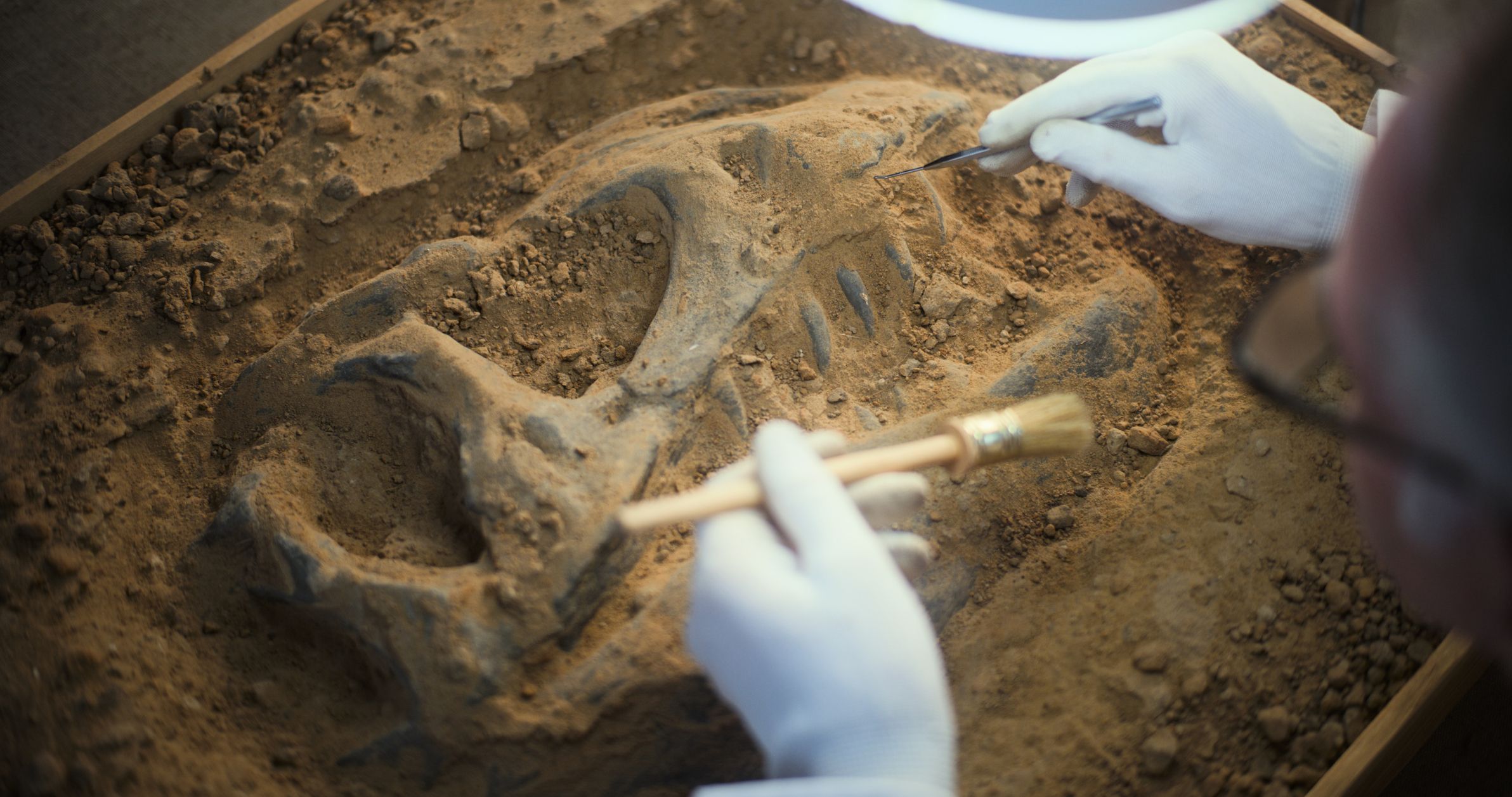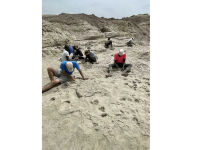Serious infections linked to dementia risk, study shows
Author of the article:Washington Post
Washington Post
Richard Sima, The Washington Post
Published Oct 18, 2024 • 5 minute read
Getting sick feels bad in the moment and may affect your brain in the longer term.
A new study published in Nature Aging adds to growing evidence that severe infections, including flu, herpes and respiratory tract infections, are linked to accelerated brain atrophy and increased risk of dementia years later. It also hints at the biological drivers that may contribute to neurodegenerative disease.
The current research is a “leap beyond previous studies that had already associated infection with susceptibility to Alzheimer’s disease” and provides a “useful dataset,” said Rudy Tanzi, a professor of neurology at Harvard Medical School and the director of the McCance Center for Brain Health at Massachusetts General Hospital.
Other recent studies have found that the flu shot and the shingles vaccine reduce the risk of subsequent dementia in those who get them. Severe infections have also been linked to subsequent strokes and heart attacks.
“Vaccines are going to be the most protection against both the acute infection as well as these post-infectious effects,” said Kristen Funk, an assistant professor of biological sciences at the University of North Carolina at Charlotte who studies neuroinflammation in neuroinfectious and neurodegenerative diseases.
Severe infections linked to brain atrophy and dementia
“The idea that infections can influence brain health for some people has been a no-brainer, especially those who themselves experienced infections,” said Keenan Walker, a tenure-track investigator and the director of the Multimodal Imaging of Neurodegenerative Disease Unit at the National Institute on Aging.
Even small infections can change the way we think and behave. More-severe infections can, in the short term, result in delirium, which may be associated with long-term cognitive problems, Walker said. “Big infection, big immune response – not good for the brain,” he said.
The hypothesis that infections may play a role in neurodegenerative diseases has been around, albeit more on the fringes, Walker said. That changed with the coronavirus pandemic and evidence of the lasting cognitive costs of long covid, which invigorated interest in the field.
Growing evidence suggests that the link “doesn’t seem to be specific to any type of infection, whether it be bacterial or viral,” said Walker, who was an author of the study.
Walker and his colleagues relied on data from the Baltimore Longitudinal Study of Aging, one of the longest-running studies of human aging in the United States. They also tracked how brain volume changed in 982 cognitively normal adults, with or without a history of infection, by taking repeated neuroimaging, starting in 2009. About 43 percent of participants had no history of infections.
Out of the 15 types of infections investigated, six – including flu, herpes, respiratory tract infections and skin infections – were associated with accelerated loss of brain volume. Brain atrophy was particularly pronounced in the temporal lobe, an area containing the hippocampus, which is important for memory and implicated in Alzheimer’s disease.
“They really found that there’s a range of infections that are associated with this brain atrophy, associated with this cognitive decline,” said Funk, who was not involved in the study.
In turn, most of these infections associated with brain atrophy seem to be risk factors for dementia, according to the researchers’ analyses of the UK Biobank data of 495,896 subjects and a Finnish dataset of 273,132 subjects.
They found that having a history of infections was associated with an increased risk for Alzheimer’s disease years later. The increased risk was even higher for vascular dementia, which is the second-most-common dementia diagnosis after Alzheimer’s disease and caused by restriction of blood to the brain.
Biological links between brain and infections
Scientists still do not understand how infections are biologically linked to increased dementia risk. But there are hints in the immune system.
In the current study, people with a history of infections also had changes to 260 immune-related proteins out of the 942 researchers tested from blood samples. A subset of 35 proteins was also associated with brain-volume changes. Some proteins seemed pathogenic and linked to reduced brain volume, while others were protective.
In general, infections were associated with increases in pathogenic proteins and decreases in protective ones.
“You might be seeing a loss of protection, or some neuroprotection that was never there,” Walker said.
This study “does shed some light on potential biological pathways that actually lead to the increase in dementia risk after severe infections,” said Charlotte Warren-Gash, a professor of epidemiology at the London School of Hygiene and Tropical Medicine, who was not involved in the study.
Better understanding of the proteins involved may one day lead to better targeting of the immune system.
But researchers cautioned that this study is just one more piece in the puzzle of dementia and shows correlations between infections, immune-related proteins and neurological effects, but not causation.
The study also does not adequately address how amyloid beta plaques and tau tangles, key biological hallmarks of Alzheimer’s disease, play into the link between infections and dementia, Tanzi said.
More-minor infections are not cause for alarm since the data was drawn from patients who had a hospital record of their infections, indicating more-severe cases, experts say.
Previous research conducted by Warren-Gash and her colleagues suggests that weaker infections increased the risk of subsequent dementia by about 2 percent, while infections requiring hospitalizations almost doubled dementia risk.
“We all get infections all the time,” Funk said. “It’s not necessarily a doomsday.”
Advice for reducing severe infections and dementia risk
The 2024 Lancet Commission report on dementia lays out 14 modifiable risk factors, which together account for 45 percent of dementia cases. To cut dementia risk and lengthen our cognitive health spans, studies suggest steps such as staying socially connected, moderating alcohol intake and addressing hearing loss.
Reducing the risk for serious infections remains important for both short-term and long-term health, experts say.
Vaccinations are the best way to prevent severe infections. Getting the flu and covid-19 shots can reduce complications, hospitalizations and the number of deaths from the viral infections. The Centers for Disease Control and Prevention also recommends the Respiratory Syncytial Virus (RSV) vaccine for everyone over 75 years old, and for those over 60 who are at increased risk for severe RSV. The CDC anticipates about 800,000 hospitalizations from flu, covid and RSV this year.
In addition, the CDC recommends two doses of the shingles vaccine for everyone 50 and older.
Other health practices such as wearing a mask and properly washing your hands also help reduce infection risk.
“The best thing you can do other than responding to an infection with symptomatic care after they occur is preventing them in the first place,” Walker said.

 torontosun.com
torontosun.com
Author of the article:Washington Post
Washington Post
Richard Sima, The Washington Post
Published Oct 18, 2024 • 5 minute read
Getting sick feels bad in the moment and may affect your brain in the longer term.
A new study published in Nature Aging adds to growing evidence that severe infections, including flu, herpes and respiratory tract infections, are linked to accelerated brain atrophy and increased risk of dementia years later. It also hints at the biological drivers that may contribute to neurodegenerative disease.
The current research is a “leap beyond previous studies that had already associated infection with susceptibility to Alzheimer’s disease” and provides a “useful dataset,” said Rudy Tanzi, a professor of neurology at Harvard Medical School and the director of the McCance Center for Brain Health at Massachusetts General Hospital.
Other recent studies have found that the flu shot and the shingles vaccine reduce the risk of subsequent dementia in those who get them. Severe infections have also been linked to subsequent strokes and heart attacks.
“Vaccines are going to be the most protection against both the acute infection as well as these post-infectious effects,” said Kristen Funk, an assistant professor of biological sciences at the University of North Carolina at Charlotte who studies neuroinflammation in neuroinfectious and neurodegenerative diseases.
Severe infections linked to brain atrophy and dementia
“The idea that infections can influence brain health for some people has been a no-brainer, especially those who themselves experienced infections,” said Keenan Walker, a tenure-track investigator and the director of the Multimodal Imaging of Neurodegenerative Disease Unit at the National Institute on Aging.
Even small infections can change the way we think and behave. More-severe infections can, in the short term, result in delirium, which may be associated with long-term cognitive problems, Walker said. “Big infection, big immune response – not good for the brain,” he said.
The hypothesis that infections may play a role in neurodegenerative diseases has been around, albeit more on the fringes, Walker said. That changed with the coronavirus pandemic and evidence of the lasting cognitive costs of long covid, which invigorated interest in the field.
Growing evidence suggests that the link “doesn’t seem to be specific to any type of infection, whether it be bacterial or viral,” said Walker, who was an author of the study.
Walker and his colleagues relied on data from the Baltimore Longitudinal Study of Aging, one of the longest-running studies of human aging in the United States. They also tracked how brain volume changed in 982 cognitively normal adults, with or without a history of infection, by taking repeated neuroimaging, starting in 2009. About 43 percent of participants had no history of infections.
Out of the 15 types of infections investigated, six – including flu, herpes, respiratory tract infections and skin infections – were associated with accelerated loss of brain volume. Brain atrophy was particularly pronounced in the temporal lobe, an area containing the hippocampus, which is important for memory and implicated in Alzheimer’s disease.
“They really found that there’s a range of infections that are associated with this brain atrophy, associated with this cognitive decline,” said Funk, who was not involved in the study.
In turn, most of these infections associated with brain atrophy seem to be risk factors for dementia, according to the researchers’ analyses of the UK Biobank data of 495,896 subjects and a Finnish dataset of 273,132 subjects.
They found that having a history of infections was associated with an increased risk for Alzheimer’s disease years later. The increased risk was even higher for vascular dementia, which is the second-most-common dementia diagnosis after Alzheimer’s disease and caused by restriction of blood to the brain.
Biological links between brain and infections
Scientists still do not understand how infections are biologically linked to increased dementia risk. But there are hints in the immune system.
In the current study, people with a history of infections also had changes to 260 immune-related proteins out of the 942 researchers tested from blood samples. A subset of 35 proteins was also associated with brain-volume changes. Some proteins seemed pathogenic and linked to reduced brain volume, while others were protective.
In general, infections were associated with increases in pathogenic proteins and decreases in protective ones.
“You might be seeing a loss of protection, or some neuroprotection that was never there,” Walker said.
This study “does shed some light on potential biological pathways that actually lead to the increase in dementia risk after severe infections,” said Charlotte Warren-Gash, a professor of epidemiology at the London School of Hygiene and Tropical Medicine, who was not involved in the study.
Better understanding of the proteins involved may one day lead to better targeting of the immune system.
But researchers cautioned that this study is just one more piece in the puzzle of dementia and shows correlations between infections, immune-related proteins and neurological effects, but not causation.
The study also does not adequately address how amyloid beta plaques and tau tangles, key biological hallmarks of Alzheimer’s disease, play into the link between infections and dementia, Tanzi said.
More-minor infections are not cause for alarm since the data was drawn from patients who had a hospital record of their infections, indicating more-severe cases, experts say.
Previous research conducted by Warren-Gash and her colleagues suggests that weaker infections increased the risk of subsequent dementia by about 2 percent, while infections requiring hospitalizations almost doubled dementia risk.
“We all get infections all the time,” Funk said. “It’s not necessarily a doomsday.”
Advice for reducing severe infections and dementia risk
The 2024 Lancet Commission report on dementia lays out 14 modifiable risk factors, which together account for 45 percent of dementia cases. To cut dementia risk and lengthen our cognitive health spans, studies suggest steps such as staying socially connected, moderating alcohol intake and addressing hearing loss.
Reducing the risk for serious infections remains important for both short-term and long-term health, experts say.
Vaccinations are the best way to prevent severe infections. Getting the flu and covid-19 shots can reduce complications, hospitalizations and the number of deaths from the viral infections. The Centers for Disease Control and Prevention also recommends the Respiratory Syncytial Virus (RSV) vaccine for everyone over 75 years old, and for those over 60 who are at increased risk for severe RSV. The CDC anticipates about 800,000 hospitalizations from flu, covid and RSV this year.
In addition, the CDC recommends two doses of the shingles vaccine for everyone 50 and older.
Other health practices such as wearing a mask and properly washing your hands also help reduce infection risk.
“The best thing you can do other than responding to an infection with symptomatic care after they occur is preventing them in the first place,” Walker said.

Serious infections linked to dementia risk, study shows
Getting sick feels bad in the moment and may affect your brain in the longer term.

![GettyImages-2167965055[1].jpg GettyImages-2167965055[1].jpg](https://forums.canadiancontent.net/data/attachments/23/23620-c4958b073fddc21c1eb907286df7bb48.jpg)















![dinosaur-illustration[1].jpg dinosaur-illustration[1].jpg](https://forums.canadiancontent.net/data/attachments/24/24171-e5e0226b3b1cd1627c97cabaad53a61b.jpg)

![dinosaur-poop[1].jpg](/data/attachments/24/24170-54841e44a1e26a2bef50ded6df141ad0.jpg)



